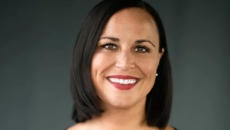Workforce
HIMSS23
Healthcare leaders and team members can use practical ways to connect more intelligently, says Erica Dhawan, a best-selling author who is delivering a keynote on the topic at HIMSS23.
The number of positions has grown from 5,127 in 2019 to 5,832 this year, a sign that the pipeline for new pharmacists is getting bigger.
The nation has been experiencing a primary care shortage since the early 2000s, with declining access affecting many Americans.
Zulla will oversee the healthcare delivery services that Optum Health provides across the northeastern quadrant of the U.S.
HIMSS23
Aimee Cardwell, SVP and CISO at UnitedHealth Group, highlights her upcoming HIMSS23 presentation, focused on using your personnel and network to build resilience.
Staffing issues and an ongoing nursing shortage continue to cause challenges for the nation's nursing workforce.
Relying on labor from contract staffing firms contributed to higher overall labor expenses, according to the American Hospital Association.
HIMSS23
Natalie Edgeworth, Providence's senior manager for workforce optimization and innovation highlights her upcoming HIMSS23 presentation, "Staffing Optimization With AI: A look back & look forward."
Highmark touted Kinsa's insights, which include prevalence of fever and other symptoms, and how quickly illness is spreading.
HIMSS23
Olga Kagan, RN, adjunct professor at CUNY School of Professional Studies and Molloy University previews her HIMSS23 discussion focusing on tools that assist nurses to decrease burnout and develop their careers.









